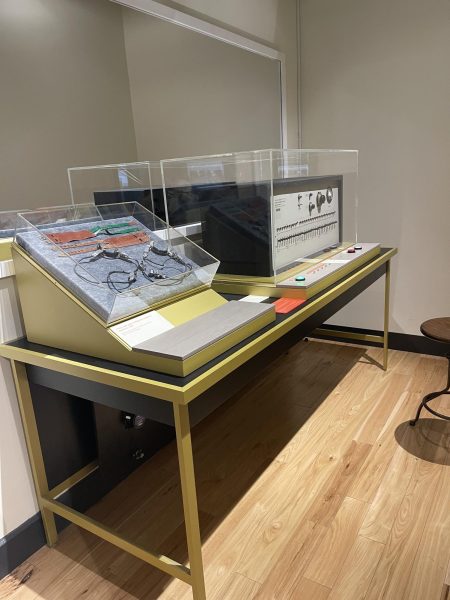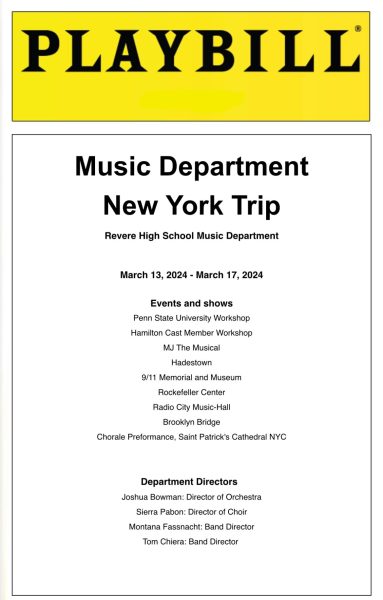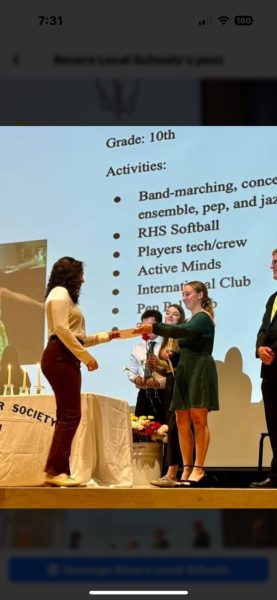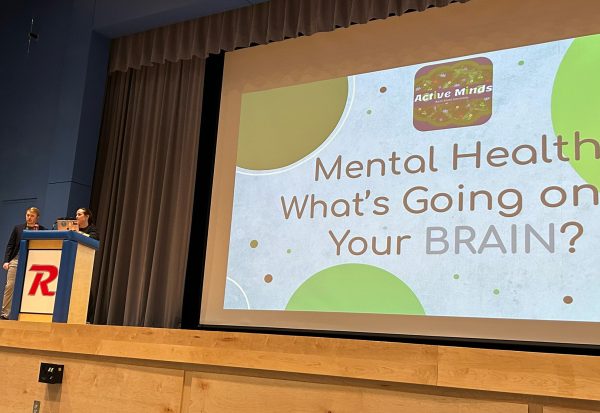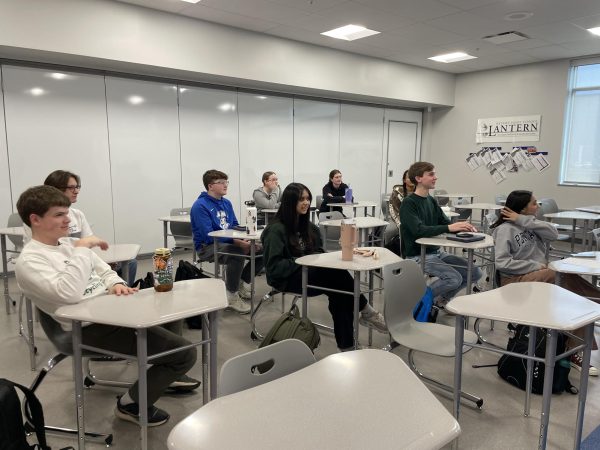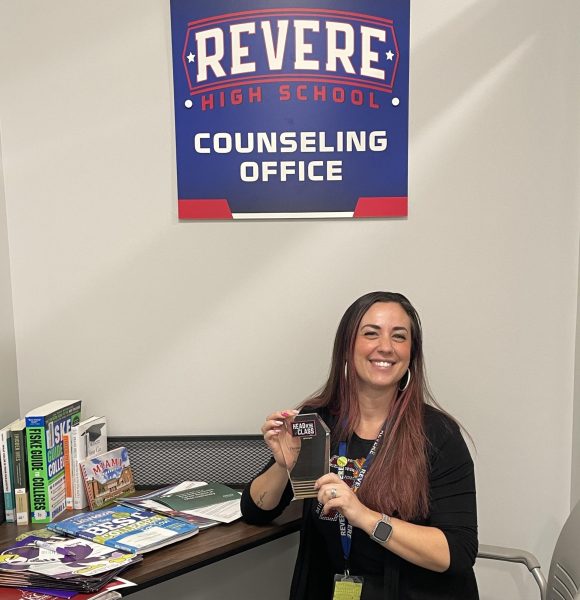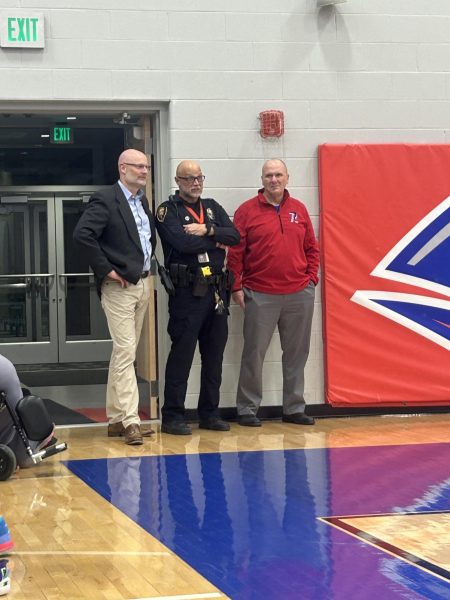District committee studies homework
Over the last two years, a committee of 25 Revere educators and administrators from across the district studied homework and the effects it has at Revere schools. Superintendent Matthew Montgomery commented on the reasons the committee was formed.“When I came on board [at] Revere in 2015, there was a common theme that was appearing from parents in different parent meetings or PTA meetings that were requesting some type of discussion on ‘What does Revere homework look like?,’ and how can we build consistency from one teacher to the next so we know what to expect as parents [so that] we can adequately prepare our students for success?” Montgomery said. Montgomery also said that the panel of 25 educators spanning from grades K through 12 and administrators from every school made up the committee. Montgomery said the committee conducted thorough research and had discussions as a group, and among other faculty members across all of the buildings in the district. “[The committee] started in February 2017. They had been working and finalizing for eighteen months on this project. They did research and had discussions as a K-12 group, as well as building discussions, such as ‘What’s homework going to look like at Richfield Elementary vs. what is it going to look like at Bath, the middle school, and the high school?’” Montgomery said. Montgomery discussed the committee’s findings, as well as the process involved and the guidelines that were set forth for each building for staff members to follow, from defining what homework was in the district to how homework should factor into a student’s overall grade.“80 percent of a grade is product, and no more than 20 percent is process and practice, which is homework. Then it talks about times, the number of minutes per night for each grade band. For example, for the middle school, it recommends 60 minutes for sixth grade, 70 minutes for seventh grade, and 80 minutes for eighth grade. It talks about that this is for a typical student, advanced students and accelerated students may have more homework. Each building has this almost FAQ of how the guidelines look in the respective buildings,” Montgomery said.
Montgomery also noted that the committee agreed upon things such as the average amount of time that was expected per night per building, as well as encouraging the staff to stay within those windows of time that it takes for students to complete their homework.“We’re asking the staff themselves to stay within those windows to make sure that students and parents know what our expectations are and why we’re focusing on homework in this way,” Montgomery said. Montgomery said that the committee findings were a long process, and praised the twenty-five individuals who were working on the project for a year and a half for their great time and energy commitment that they put in to come up with these guidelines.“I [am] proud of the work they did, because this is an extremely polarizing topic. People have widely varied opinions, and for a group of educators to come together, focus on research, have conversations together; it was powerful work and I think the district is stronger because of their time they spent together,” Montgomery said.Revere High principal Phil King described the committee and its leadership, as well as how the research the committee conducted determined what was appropriate for students’ homework and their needs, and how the amount of homework that a student receives depends on the type of courses they are enrolled in.“The homework committee was a group of individuals from all the buildings in the district, and was led by Kathy Nolan, who is our curriculum director. [When] it came to the high school, there were some decisions made regarding about how much homework should be offered in class . . . and [how] some students are going to have more [homework] and some students are going to have less [depending] on the coursework that you signed up for,” King said. King also mentioned how and why homework is an essential part of learning, and how it is important that students understand how they best use their homework time. King also commented that students should always feel free to voice any issues with their homework to their teachers so that they can receive any help on problems they may have questions on. “Homework really is an essential part of learning. Our teachers are very caring and
they don’t want to overwork you or overburden you, but they want you to learn the material, so there has to be a happy balance there, because teachers need feedback. I know sometimes kids get assignments and [they] don’t want to do it, but I know that they’re meaningful and not busy work,” King said. According to the committee’s findings and guidelines for the high school, the goal of homework is to have consistency in students’ learning experiences. The report detailed many aspects of homework, including defining homework, the purpose of homework, homework’s contribution to the overall grade, the optimal amount of homework students should have per night, guidelines for best practices in homework design, and feedback to students. According to the report, homework is defined as “any learning activity to be completed during non-school hours.” “The purpose of homework [is] pre-learning, checking for understanding, practice, and processing. As recommended practice, homework should not exceed 20% of the student’s overall grade, excluding major projects and writing assignments,” the report said. The report stated that generally, high school students should have no more than 100-130 minutes of homework per night, combined, although Honors and AP students may exceed that range. The report detailed various best practices in homework design. “Homework [should] have a clear academic purpose, foster students’ confidence in their skills, give students choices and opportunity for personal expression, foster problem solving and creativity, help students see the relevance to their own lives and the world around them, utilize homework to inform future lessons, allow for late homework when appropriate, and to utilize schoolwide homework support programs before, during, and after school,” the report said. The report also gave some feedback for students. “[Homework] should be prioritized over grades themselves, [and] should take place, as a minimum, prior to summative assessment,” the report said. The committee’s findings were released in early September of this year and the guidelines for each school can be found on the district website.

